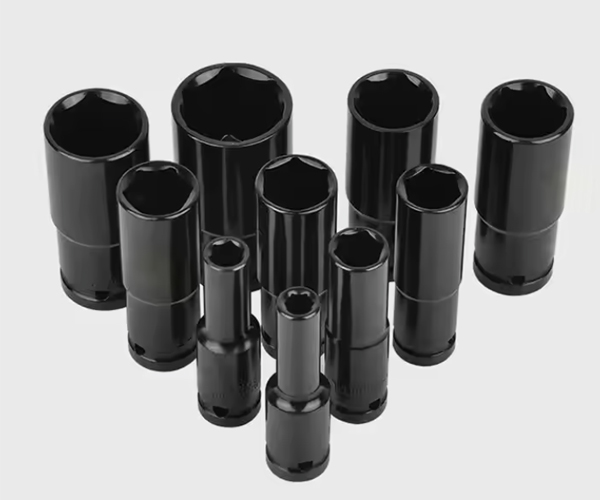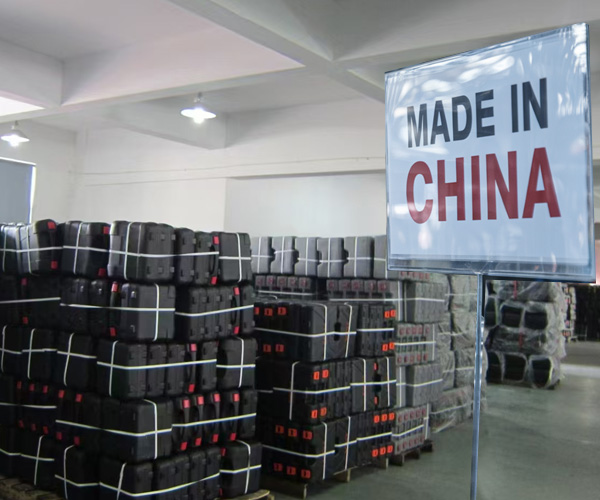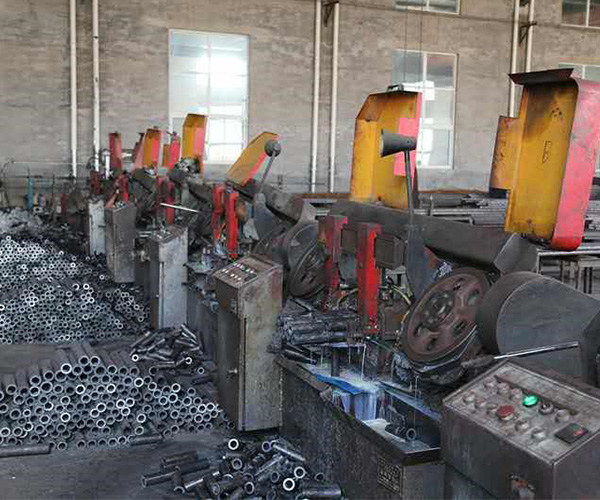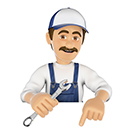Impact sockets are essential tools in industrial and automotive sectors, designed specifically to endure the high torque generated by impact wrenches and other heavy-duty tools. Unlike regular sockets, impact sockets are crafted with stronger materials, typically high-grade steel alloys like chromium-molybdenum, to withstand significant stress without cracking or deforming. In high-torque applications, these impact sockets deliver performance and reliability, making them a staple in B2B sectors, where durability and efficiency are key.
For businesses purchasing in bulk or as distributors, choosing the right supplier is crucial. The reliability and quality of a supplier affect not only the cost but also the service and safety provided to end users. For procurement officers, buyers, and product managers sourcing impact sockets and related equipment, this choice can directly influence business performance, client satisfaction, and profit margins. This guide explores everything you need to know about selecting the best impact socket suppliers for B2B—covering essential aspects from quality control to cost-effective purchasing and logistics.
Key Factors to Evaluate in an Impact Socket Supplier
Selecting the best impact socket supplier for your B2B needs involves understanding several critical factors. These factors go beyond just finding a supplier with good prices; they cover quality, variety, reputation, certifications, and more. In this section, we break down each of these considerations so you can make an informed decision that ensures you get the best value and reliability from your supplier.
1. Product Quality and Durability
Quality is the top priority when selecting an impact socket supplier. B2B buyers, especially those in fields like automotive repair, heavy machinery, and manufacturing, need sockets that can withstand rigorous daily use. Here’s what to look for in terms of quality:
- Material Quality: High-quality impact sockets are usually made from chromium-molybdenum (Cr-Mo) steel or similar alloys. This material provides the strength and flexibility required to absorb the shock of high-torque tools without cracking.
- Heat Treatment and Forging: To enhance strength and durability, top manufacturers employ heat treatment and forging techniques. Heat treatment ensures the socket’s core remains tough while providing flexibility in the outer layer to prevent fractures under stress.
- Precision Engineering: Quality impact sockets are designed with precise engineering, often down to the smallest details in sizing and fit. A well-made socket will fit snugly, reducing the likelihood of slipping, rounding fastener edges, or causing damage during use.
- Testing Standards: Reliable suppliers subject their products to rigorous testing to ensure they meet or exceed industry standards like the American National Standards Institute (ANSI) or International Organization for Standardization (ISO). Compliance with these standards ensures the product’s durability and performance.
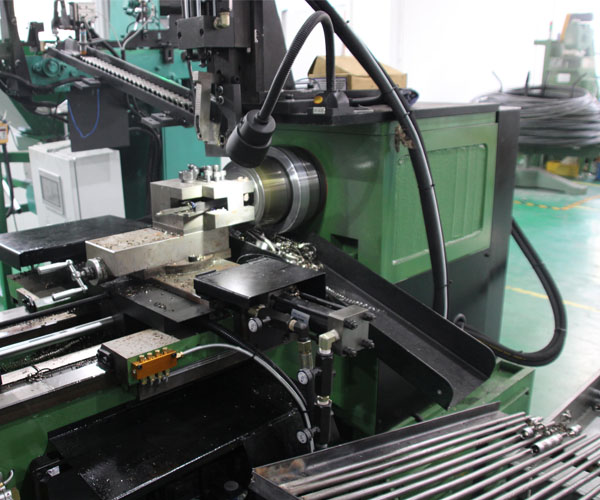
2. Range of Products
An ideal supplier for B2B impact sockets offers a wide product range to meet diverse needs. Here are some aspects to consider:
- Types of Sockets: Impact sockets come in various forms, including deep, shallow, universal, and hex types. A supplier with a wide selection can meet specific demands across industries.
- Drive Size Options: From smaller 1/4-inch drives for light-duty applications to larger 1-inch drives for industrial use, a broad range of drive sizes is essential.
- Specialty Sockets: Some suppliers offer specialized sockets, such as thin-wall or swivel impact sockets, which are invaluable in complex applications where accessibility is limited.
- Compatibility: Quality impact socket suppliers provide products compatible with different types of impact tools, such as pneumatic, electric, and hydraulic wrenches. The ability to purchase a variety of compatible tools from one source is advantageous for buyers, reducing logistical complexities and consolidating shipments.
3. Supplier’s Reputation and Reliability
A supplier’s reputation is often a strong indicator of their reliability and the quality of their products. Checking a supplier’s background and client testimonials can provide insight into what you can expect:
- Client Testimonials and Reviews: Look for consistent positive reviews from other businesses, especially those in similar industries. Feedback on durability, quality, and customer service will help you gauge if the supplier meets high standards.
- Industry Presence: Suppliers with established relationships and a visible presence in trade shows and industry events are more likely to be reputable. Their commitment to networking and client relations is often a sign of a stable and reliable business.
- Transparency in Operations: Reliable suppliers are transparent about their production processes, sources, and quality control measures. They provide clear documentation and are willing to address concerns, reflecting their confidence in the quality of their products.
4. Pricing and Payment Options
Competitive pricing is essential in the B2B space, but the lowest price doesn’t always mean the best value. Instead, look for suppliers who offer a balance of cost-effectiveness and quality:
- Price per Unit and Discounts for Bulk Orders: A clear pricing structure that rewards higher purchase volumes with discounts is common among reputable suppliers. Bulk purchasing can significantly lower per-unit costs.
- Flexible Payment Terms: B2B suppliers often offer flexible payment options to accommodate large orders, such as net 30, net 60, or even Letter of Credit (LC) options. These arrangements can be beneficial for cash flow management.
- Price Transparency: Trustworthy suppliers provide transparent pricing, detailing costs related to production, customization, packaging, and shipping. Avoid suppliers with unclear pricing or frequent hidden fees.
Leading Regions for Impact Socket Suppliers
Impact socket suppliers are globally distributed, with some regions specializing in high-quality manufacturing and others offering cost-effective production. Here, we explore the key regions known for impact socket production and what each has to offer to B2B buyers.
1. China
China is one of the world’s largest producers of impact sockets, offering a wide range of products at competitive prices. For many B2B buyers, China is a preferred source due to several factors:
- Cost-Effective Production: Chinese manufacturers benefit from economies of scale, enabling them to produce large quantities at lower costs. This can be advantageous for buyers looking to purchase in bulk.
- Diverse Range of Suppliers: China has suppliers specializing in all types of impact sockets, from heavy-duty industrial to consumer-grade products. This variety allows buyers to find exactly what they need without sourcing from multiple locations.
- Challenges to Consider: Despite the benefits, sourcing from China comes with potential challenges. Quality control can vary significantly between suppliers, and communication barriers can sometimes complicate orders. To address these issues, it’s crucial to select suppliers with a proven track record and conduct thorough quality checks.
2. Taiwan and South Korea
Both Taiwan and South Korea have established reputations for producing high-quality industrial tools, including impact sockets:
- Precision and Quality Focus: These regions are known for their strict quality control and precision manufacturing, making their products a great fit for buyers seeking high-end impact sockets.
- Technological Innovation: Taiwanese and South Korean manufacturers often lead in technological advancements, integrating better materials and production methods. This results in products that meet or exceed industry standards.
- Competitive Pricing: Although prices are typically higher than China, Taiwan and South Korea offer competitive pricing compared to Western suppliers while maintaining higher quality.
3. Europe
European manufacturers, especially those based in Germany, Switzerland, and Italy, produce some of the highest-quality impact sockets on the market:
- Premium Quality Standards: European tools are renowned for precision, quality, and longevity, appealing to buyers who prioritize top-notch products.
- Eco-Friendly Manufacturing: European manufacturers are often committed to sustainable production, using environmentally friendly materials and processes.
- Higher Price Point: European products generally come with a premium price, reflecting their quality and the rigorous standards they meet. For some B2B buyers, the durability and performance of these products justify the higher costs.
4. U.S. and North America
The U.S. and Canada also produce quality impact sockets, primarily for the North American market:
- Shorter Lead Times for Local Buyers: For North American businesses, buying domestically reduces shipping times and potential customs issues.
- Strict Adherence to Safety Standards: North American manufacturers adhere strictly to local safety regulations, providing an added layer of trust for buyers.
- Higher Production Costs: Due to higher labor and production costs, North American suppliers typically charge more. However, the benefits of local support and shorter delivery times may outweigh these costs for some buyers.
Evaluating Supplier Quality and Performance in Real-World Conditions
Ensuring the quality of impact sockets is critical, particularly when purchasing in bulk. Conducting thorough evaluations and quality checks can help B2B buyers avoid costly issues down the line.
1. Pre-Order Inspection and Quality Checks
Before committing to a bulk order, it’s essential to verify the quality of the impact sockets through pre-order inspections. Many suppliers offer sample inspections, and some B2B buyers work with third-party inspection services. Key tests to consider include:
- Hardness Testing: Ensures the material can withstand heavy torque without cracking.
- Tolerance Tests: Verifies that sockets meet precise size specifications and fit securely on fasteners.
- Impact Resistance: Testing for durability under high torque, to ensure the socket won’t fail during demanding applications.
2. Sample Orders and Testing
Ordering samples is a standard practice in B2B sourcing, allowing buyers to test products before placing large orders. In particular, testing for:
- Torque Tolerance: Ensures the socket can handle the maximum torque specified by the supplier.
- Impact Resistance: Real-world testing to see how sockets perform under stress, especially for industrial or automotive applications.
3. Ongoing Quality Assurance and Relationship Management
Maintaining a strong relationship with your supplier can be invaluable for ongoing quality assurance. Building trust can lead to better communication, faster issue resolution, and even customizations or discounts over time. Periodic checks and open communication about any issues can also ensure a consistent quality standard in your supply chain.
Customization and OEM Services for Brand-Focused Buyers
For B2B buyers, especially distributors and private label brands, the ability to customize products or opt for OEM (Original Equipment Manufacturer) services is a valuable feature when selecting an impact socket supplier. Customization allows businesses to differentiate their product lines, adding unique value for their end customers while strengthening brand identity.

1. Why OEM Services Matter for Distributors
OEM services provide an opportunity for distributors to market products under their own brand, which can enhance recognition and trust in competitive markets. By rebranding impact sockets, distributors can build a loyal customer base and establish a unique market position. OEM services can include:
- Custom Branding: Suppliers can add logos, brand colors, and other design elements to products and packaging.
- Unique Packaging: Custom packaging with brand-specific colors, logos, and materials helps enhance brand visibility and adds a professional look to the products.
- Tailored Product Features: In some cases, suppliers offer modifications to the product itself, such as specific sizing or unique materials, to suit niche markets or specific client needs.
2. Questions to Ask When Opting for Customization
Before committing to customization, it’s essential to clarify the following points with your supplier to ensure that OEM services meet your expectations:
- Minimum Order Quantities (MOQs): Customization usually requires a minimum order quantity, which varies from supplier to supplier. Some require smaller MOQs, while others may only offer customization for large bulk orders.
- Additional Costs: Customization often incurs extra fees, whether for branding, packaging, or design adjustments. Be clear about these costs to evaluate the true value of OEM services.
- Lead Times for Customized Orders: Custom orders may have longer production times. Verify the expected timeline to avoid delays, particularly if you have seasonal sales or time-sensitive distribution schedules.
- Quality Control in Customization: Discuss how the supplier maintains quality control in customized orders. Consistency is crucial, especially when representing your brand.
3. Balancing Customization and Cost
Customization adds value but also increases production costs, so finding the right balance is key. Calculate the cost-benefit ratio to determine if customization will enhance customer loyalty, justify a price premium, or differentiate your product significantly.
Cost-Effective Purchasing and Negotiation Strategies
Purchasing impact sockets in bulk presents opportunities for savings, and understanding negotiation techniques can help buyers secure the best deals. Here are some strategies to maximize cost efficiency while ensuring you receive high-quality products.
1. Bulk Purchasing Benefits
In B2B transactions, bulk purchasing often leads to better pricing and discounts. Suppliers may offer a reduced per-unit cost as order volumes increase, providing a strong incentive for buyers to consolidate orders. Some benefits of bulk purchasing include:
- Lower Unit Costs: Volume discounts can reduce the cost per socket, resulting in significant savings on large orders.
- Reduced Shipping Fees: Ordering in bulk often allows for a single, consolidated shipment, lowering logistics and freight costs.
- Improved Supplier Relationships: Bulk buyers are often considered priority clients, which can lead to more favorable terms and priority in production schedules.
2. Negotiation Tips for Better Deals
Negotiation is essential in securing favorable terms, especially when dealing with large orders or ongoing contracts. To negotiate effectively:
- Know Market Prices: Research standard market prices for impact sockets to understand fair pricing and identify inflated quotes.
- Leverage Order Volume: Use the size of your order as a bargaining tool. Suppliers are more likely to offer discounts on large orders or if you commit to regular purchases.
- Ask for Flexible Payment Terms: Payment terms such as net 30 or net 60 can help with cash flow management. Many suppliers are open to negotiating payment schedules, especially with reliable buyers.
- Request Price Lock-In for Contracts: If you plan to place regular orders, negotiate for a fixed price over a certain period to protect against price increases.
3. Assessing True Cost Beyond the Price Tag
In addition to the per-unit price, consider all related costs, such as shipping fees, customs duties, and any inspection fees. Sometimes a slightly higher-priced supplier with better shipping options and transparent fees ends up being the more economical choice.
Logistics and Shipping Considerations for Global Orders
For international buyers, especially those sourcing from overseas suppliers, understanding the logistics and shipping options is essential. Efficient logistics management ensures timely delivery and helps control overall costs.
1. International Shipping Terms and Options
When sourcing from international suppliers, it’s essential to understand common shipping terms (Incoterms) and options. Popular Incoterms for B2B buyers include:
- EXW (Ex Works): The buyer is responsible for all shipping costs and logistics from the supplier’s warehouse onward. This option gives you full control over logistics but requires a thorough understanding of shipping processes.
- FOB (Free On Board): The supplier handles all costs up to the point where the goods are loaded onto the transport vessel, after which the buyer assumes responsibility. This is a popular choice for B2B buyers as it reduces the complexities of local handling.
- DDP (Delivered Duty Paid): The supplier takes full responsibility for delivering goods to your door, including customs and import duties. While this is typically the most expensive option, it’s also the most convenient, as it reduces potential customs issues.
2. Choosing the Right Freight Method
Selecting the right freight method is a balance between cost, speed, and the nature of the goods being shipped:
- Sea Freight: Ideal for large, heavy orders that aren’t time-sensitive. Although slower, it’s the most cost-effective method for bulk shipments.
- Air Freight: Suitable for smaller, urgent shipments, though more expensive. Some buyers prefer air freight for initial orders or sample shipments.
- Express Shipping: Companies like DHL, FedEx, and UPS offer express services that are convenient for urgent needs but can be costly, particularly for heavy items.
3. Customs and Import Regulations
Understanding import regulations in your region can prevent delays and unexpected fees. Each country has specific requirements for industrial tools, and meeting these regulations is essential to ensure a smooth import process:
- Import Documentation: Typically includes a commercial invoice, packing list, and bill of lading. Some countries require additional certifications for specific types of tools.
- Duties and Taxes: Import duties can vary by country, affecting overall costs. Knowing duty rates for industrial tools like impact sockets can help you estimate final costs.
- Customs Brokers: For complex shipments, working with a customs broker can simplify the process. They handle paperwork and ensure compliance with import regulations, helping avoid delays.
Red Flags and Pitfalls to Avoid When Choosing an Impact Socket Supplier
Not all suppliers deliver on their promises, so understanding potential red flags can help avoid costly mistakes. Here are some common issues to watch for and strategies to avoid them.
1. Common Supplier Issues to Watch For
Suppliers may sometimes compromise on quality, reliability, or transparency. Here are warning signs to help identify unreliable suppliers:
- Inconsistent Quality: A lack of uniformity in product quality is a major concern, especially if you plan to order in bulk. It’s essential to test samples from multiple batches to confirm consistency.
- Missing Certifications: Suppliers who cannot provide certification for quality or safety standards may not meet industry expectations, potentially causing problems in regulated markets.
- Poor Communication: Difficulty in reaching the supplier or receiving timely responses is often a red flag. Poor communication can lead to misunderstandings and errors in order fulfillment.
2. How to Avoid Supplier Fraud
Supplier fraud can be a costly issue, especially in international transactions. To avoid potential scams:
- Verified Supplier Programs: Platforms like Alibaba and Made-in-China offer verified supplier programs that vet businesses for reliability and quality. Choosing verified suppliers adds an extra layer of security.
- Third-Party Verification: For large orders, consider hiring third-party inspection services to validate product quality and ensure the supplier is legitimate.
- Escrow Payment Options: Using an escrow service protects your payment until you confirm receipt of the goods. This option is particularly useful for first-time transactions or new supplier relationships.
3. Handling Disputes and Quality Issues
Despite best efforts, disputes or quality issues can arise. Having a clear process in place can help resolve issues efficiently:
- Agreed Quality Standards: Establish quality standards and inspection criteria in the purchase agreement. This ensures that both parties understand the quality expectations.
- Return and Refund Policies: Confirm the supplier’s policy on returns and refunds for defective products. Knowing these terms upfront can help avoid disputes later on.
- Document Everything: Maintain thorough records of communications, contracts, and inspection reports. Documentation can serve as evidence in case of a dispute, helping to protect your interests.
FAQs for B2B Buyers of Impact Sockets
To further assist buyers, here are some commonly asked questions about sourcing impact sockets for B2B purposes:
- How Can I Verify Supplier Quality?
- Most suppliers offer sample inspections, and third-party quality verification services are also available. Requesting certifications (e.g., ISO) and asking for testing records can provide additional assurance.
- What Are Typical Lead Times for Impact Socket Orders?
- Lead times vary by supplier and order volume. For bulk orders, typical production times range from two to six weeks, plus additional time for shipping.
- How Much Can I Save with Bulk Orders?
- Bulk orders usually reduce the cost per unit by 5-30%, depending on the supplier and order size. Discounts increase with larger orders, so consolidating purchases can be cost-effective.
- Are There Environmental Regulations for Importing Impact Sockets?
- Certain countries have eco-regulations for importing tools, especially those containing specific materials. European and North American markets may require documentation to prove compliance with environmental standards.
Conclusion: Choosing the Best Impact Socket Supplier
In conclusion, selecting the best impact socket supplier for B2B purposes requires careful consideration across several key areas. From product quality and variety to supplier reputation and pricing flexibility, each factor contributes to a supplier’s value. Additionally, assessing logistics options and potential customization services ensures that the supplier can meet your unique business needs. By conducting due diligence, testing products, and establishing a strong relationship with a reputable supplier, buyers can secure a reliable source of high-quality impact sockets that serve both their customers and their bottom line.
The journey to finding the ideal supplier may involve trial, negotiation, and even initial sampling, but the benefits of a trustworthy partner are invaluable in the long run.
Ready to Source Reliable Impact Sockets for Your Business?
At KOLARWIN, we understand the unique needs of B2B buyers in the hand tools and industrial equipment market. With a commitment to quality, customization options, and competitive pricing, we’re here to help you streamline your sourcing process. Whether you’re looking for OEM services, bulk ordering, or just reliable tools that meet rigorous industry standards, we have the expertise and products to meet your requirements.
Contact KOLARWIN today to explore our full range of impact sockets and discuss how we can support your business with reliable tools, efficient logistics, and exceptional service. Let us be your trusted partner in providing top-quality tools that make a difference.


